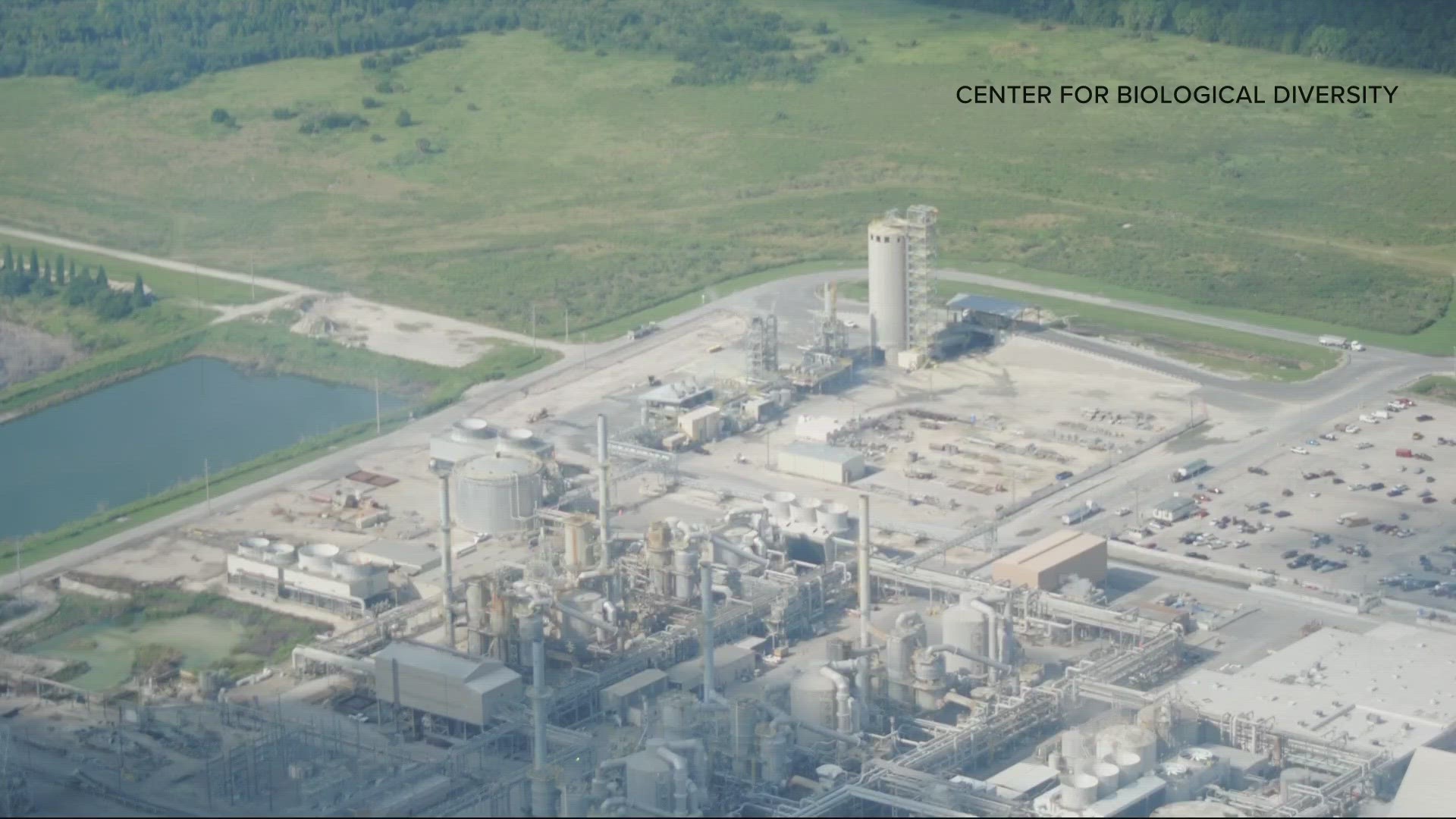JACKSONVILLE, Fla. — More people in Florida means more road construction. That’s certainly the case in northeast Florida where the population is booming.
Meanwhile, Florida has a lot of something else, and that is a substance called phosphogypsum. It's also known as PG.
It’s the byproduct of phosphate mining. When phosphate fertilizer is made, so is PG. PG is stored in stacks that look like mini-mountains in Florida. They're mostly in central and south Florida.
"They're hundreds of acres wide and hundreds of feet tall. There are more than one billion tons of this radioactive waste already stored in 25 gyp-stacks across Florida," Ragan Whitlock said. He is an attorney for The Center for Biological Diversity.
So what do you do with all that PG? Is there a way to use it for something?
"Currently it cannot be used for anything, considering it’s incredibly hazardous and toxic," Whitlock said.
That is the case in the United States.
The Environmental Protection Agency states "All uses of phosphogypsum waste have been banned unless the waste has very little radioactivity."
However, a bill before Florida lawmakers would give the green light to use PG in road construction.
A group called Phosphate Innovative Initiative is looking for ways to use PG. A video on its website is with University of Florida professor, Dr. Tim Townsend. In it, he says "You can take PG for example and it could be used in certain fashions, for example, blending it with certain aggregates, blending it with perhaps cement and sand to create a construction product. This might be good material as a road base."
he noted finding a use for PG would be better than leaving it in piles.
"There are some disadvantages to taking gypsum, putting it in a pile, and leaving it there forever," Townsend said. "If we can figure out a way to make it safely and productively, it makes more sense from a sustainability perspective."
But that makes no sense to Whitlock with The Center For Biological Diversity. He said radioactive PG could be toxic for the ecosystem next to any roads built with it, let alone to construction workers who handle it.
"I think there’s no way to explain this (bill) than to cater to the phosphate industry," Whitlock said.
These two different sides of the issue say they’re looking out for the environment.
One group looks at those small mountains of PG and sees an opportunity. Another side sees them as a road to the danger zone.

